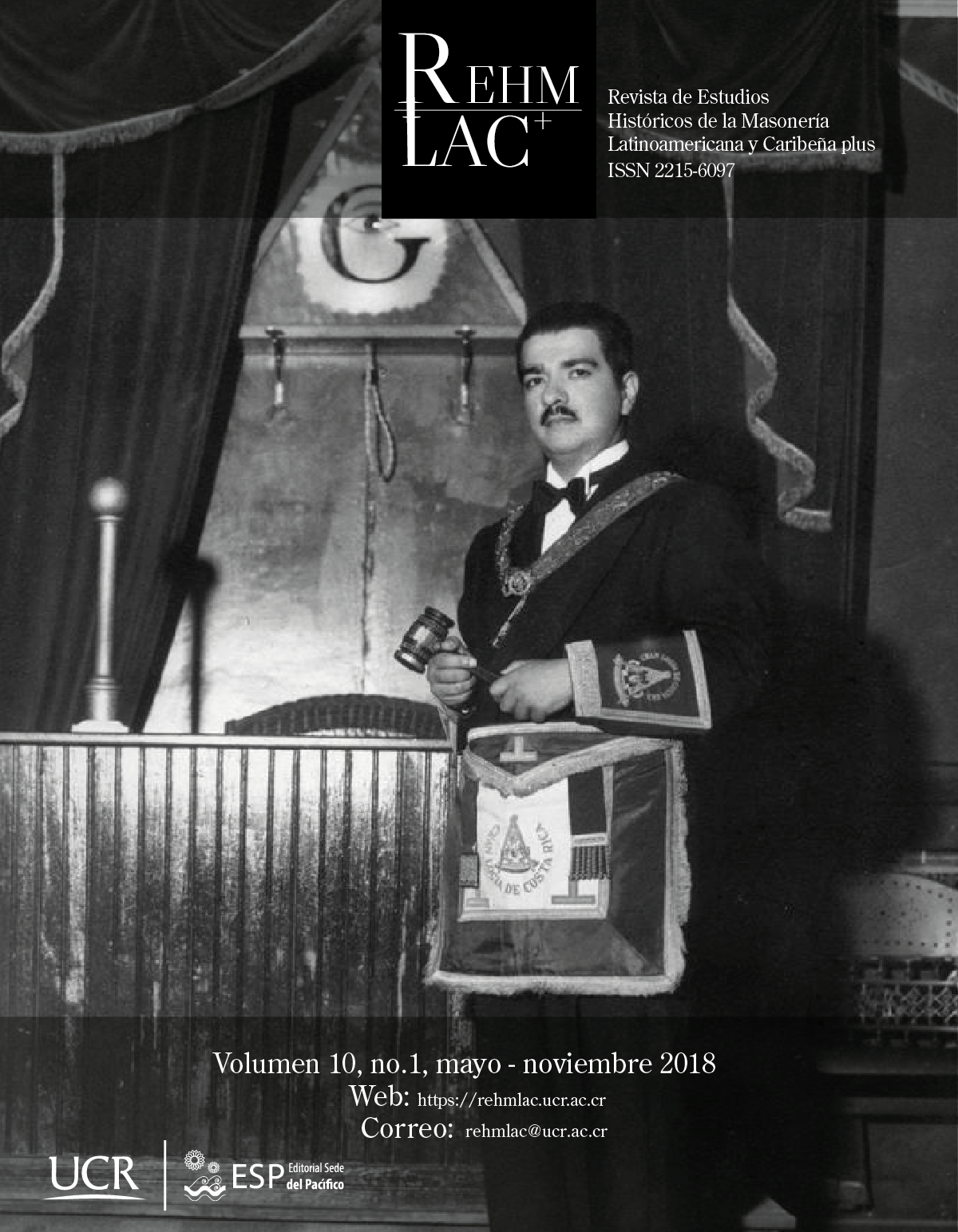Abstract
Centuries of controversy, prohibitions and mutual attacks have made Freemasonry and the Catholic Church somewhat irreconcilable adversaries. Nonetheless, the attraction Freemasonry has had for members of the Church in its origins is still paradoxical and continues nowadays. In the ranks of Freemasonry, and particularly in the Masonic leaderships, there were members from the Catholic Church, especially from its secular and regular clergy. If this was true at an international level, it was even more so in catholic countries where masonic obedience was eloquently implemented, especially in our case study, which is the archipelago of Madeira. How can we explain this attraction and this crossing of forbidden frontiers, especially of Catholics who joined Freemasonry, while continuing their catholic practice? Throughout this study we will try to understand Freemasonry as a movement and an institution, in latu sensu, that sought to constitute elites of high intellect and social influence.
References
Agulhon, Maurice. Pénitents et francs-maçons de l’ancienne Provence: essais sur la sociabilité méridionale. Paris: Fayard, 1984.
Azevedo, Álvaro Rodrigues de. Dicionário Universal Português Ilustrado, 1884.
Barata, Alexandre Mansur. Maçonaria, sociabilidade ilustrada e Independência do Brasil (1790-1822). São Paulo-Juiz de Fora: Annablume-Ed. UFJF, 2006.
Bethencourt, Francisco. História das Inquisições: Portugal, Espanha e Itália (séculos XV-XIX). São Paulo: Companhia das Letras, 2000.
Coustos, John. The Sufferings of John Coustos for Freemasonry and for His Refusing to Turn Roman Catholic in the Inquisition. London: Printed by W. Strahan, for the author, 1746.
Ferrer Benimeli, José Antonio. G. Caprile, Maçonaria e Igreja Católica. Traduzido por V. Alberton. São Paulo: edições Paulinas, 1983.
Ferrer Benimeli, José Antonio coord. La Masoneria en la España del siglo XIX: II Symposium de Metodología Aplicada a la Historia de la Masonería Española. Léon: Junta de Castilla y Leon, 1987.
Janes, Emanuel. “Igreja e Maçonaria na Madeira: a Alçada de 1823”. Em Diocese do Funchal - A Primeira Diocese Global: História, Cultura e Espiritualidades. Dirigido por José Eduardo Franco e João Paulo Oliveira e Costa. Funchal/Lisboa: Esfera do Caos/Diocese do Funchal, 2015.
Loja, António. A luta do poder contra a Maçonaria: quatro perseguições no século XVIII. Lisboa: Âncora, 2017.
Marques, A. H. de Oliveira. História da Maçonaria em Portugal. Lisboa: editora Presença, 1990.
Pinheiro, Susana Marta Delgado. “Religião, sociedade e vintismo no Jornal Astro da Lusitânia”. Lusitania Sacra 16 (2004): 345-358.
Rafael, Gina Guedes e Manuela Santos coord. e org. Jornais e Revistas Portugueses do século XX. Lisboa: BNP, 1998-2002.
Ramos, Rui. “Antiçamonismo”. Em Dança dos Demónios – Intolerância em Portugal. Organizado por António Marujo e José Eduardo Franco. Lisboa: Círculo de Leitores, 2009.
Santos, Fernanda y José Eduardo Franco. “A insustentável leveza das fronteiras: Clero Católico na Maçonaria e a questão do Anticlericalismo e do Antimaçonismo em Portugal”. REHMLAC 2, no. 2 (diciembre 2010-abril 2011), 53-65, https://revistas.ucr.ac.cr/index.php/rehmlac/article/view/6596/6287
Serrão, Joaquim Veríssimo. História de Portugal – O Despotismo Iluminado (1750-1807). Lisboa: Editorial Verbo, 1981.
Soriano, Simão José da Luz. História da Guerra Civile do estabelecimento do governo parlamentar em Portugal. Lisboa: Imprensa Nacional, 1871.
Tarantino, Giovanni. “The Mysteries of Popery Unveiled: Affective Language in John Coustos’ and Anthony Gavín’s Accounts of the Inquisition”. Em Spaces for Feeling: Emotions and Sociabilities in Britain, 1650-1850. Editado por Susan, Broomhall. London: Routledge, 2015.


